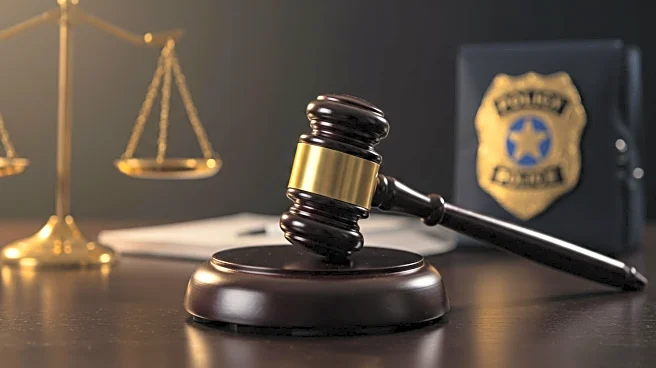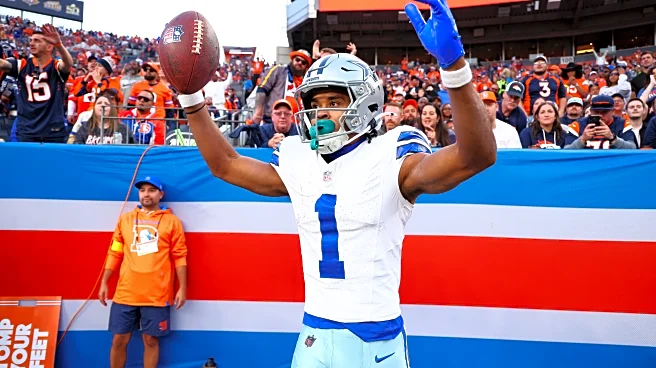What's Happening?
Attorney General Pam Bondi has appointed Terry Cole, the head of the Drug Enforcement Administration (DEA), as Washington's emergency police commissioner. This move follows President Trump's decision to take control of the Washington police department. Bondi has granted Cole the powers of police chief, requiring the Metropolitan Police Department to seek his approval before issuing orders. This appointment has sparked controversy, with the capital city's attorney general labeling Bondi's action as unlawful, potentially leading to a legal battle. Cole, who has recently been confirmed by the U.S. Senate as the DEA leader, has a long history in law enforcement, including 22 years at the DEA and previous roles in Virginia and New York.
Why It's Important?
The appointment of Terry Cole as DC's police commissioner is significant as it represents a direct intervention by the federal government in local law enforcement, raising questions about jurisdiction and authority. This move could have implications for the autonomy of local police departments and their ability to enforce policies independently. The legal dispute initiated by the city's attorney general highlights potential conflicts between federal and local governance, which could affect public policy and law enforcement practices in Washington, D.C. The decision may also impact immigration enforcement policies, as Bondi has rescinded orders limiting inquiries into immigration status.
What's Next?
The legal battle over the appointment of Terry Cole is likely to unfold, with the District of Columbia Attorney General Brian Schwalb challenging the federal intervention. Local officers have been instructed to follow existing orders over Bondi's directives, suggesting a potential standoff between local and federal authorities. The outcome of this dispute could set a precedent for federal involvement in local law enforcement and influence future policy decisions. Stakeholders, including political leaders and civil rights groups, may react to this development, advocating for or against federal oversight in local policing.
Beyond the Headlines
This situation raises broader questions about the balance of power between federal and local governments, particularly in law enforcement. The intervention by the Trump administration could be seen as a test of federal authority over local jurisdictions, potentially leading to long-term shifts in governance and policy enforcement. Ethical considerations regarding the enforcement of immigration policies and sanctuary city status may also come to the forefront, influencing public discourse and legal interpretations.









